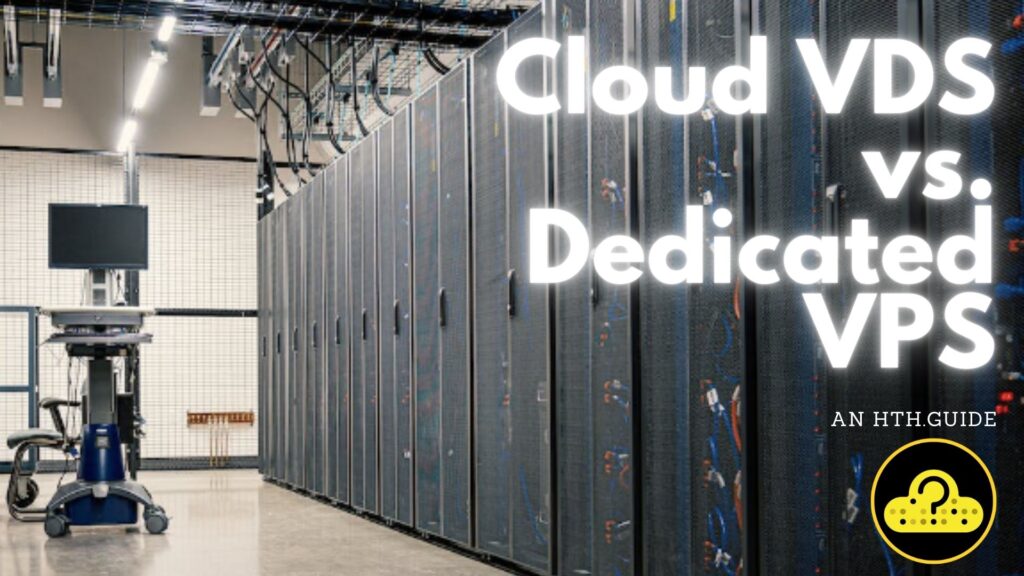On This Page: [hide]
Wondering about Cloud VDS vs. Dedicated VPS and which is better? Read this guide! It contains all of the information needed so you can understand them clearly and make an informed choice.
In the evolving landscape of web hosting, two options have garnered significant attention: Cloud VDS (Virtual Dedicated Server) and Dedicated VPS (Virtual Private Server).
As businesses and individuals grapple with finding the perfect hosting solution, understanding the nuances between these two can make all the difference.
Dive into this article to unravel the pros, benefits, and potential pitfalls of each.

Cloud VDS vs. Dedicated VPS – The Basics
Before diving deep, it’s essential to understand the fundamentals.
A Cloud VDS operates in a cloud environment, pooling resources from multiple physical servers, offering unmatched scalability and flexibility.
In contrast, a Dedicated VPS mimics a dedicated server but operates within a larger physical server, ensuring users have dedicated resources and an isolated environment.
Cloud VDS vs. Dedicated VPS – Scalability and Performance
When it comes to scalability, Cloud VDS takes the lead. Its inherent design allows users to quickly draw on resources, making it ideal for fluctuating needs. There are easier ways to upgrade both VPS and VDS services using new technologies, such as NVMe, newer CPU, RAM and other resources.
On the other hand, Dedicated VPS offers consistent performance, thanks to its fixed resources.
While the Cloud VDS can provide robust performance, it’s contingent on the overall cloud infrastructure’s load.
Cloud VDS vs. Dedicated VPS – Security Considerations
Security is paramount in today’s digital age.
Both Cloud VDS and Dedicated VPS offer robust security features. However, the distributed nature of Cloud VDS makes it slightly harder to compromise.
Meanwhile, the security of a Dedicated VPS is deeply intertwined with its host machine’s security protocols.
Cloud VDS vs. Dedicated VPS – Cost Implications
Budget constraints are a reality for many. Dedicated VPS often comes with a predictable, fixed monthly cost.
In contrast, Cloud VDS might follow a pay-as-you-go model. While this can be cost-effective for some, heavy users might find it pricier than its counterpart.
Pros and Cons
Cloud VDS:
Pros:
- Highly scalable.
- Distributed nature enhances security.
- Flexible payment models.
Cons:
- Performance might vary based on cloud infrastructure load.
- Can become expensive with heavy usage.
Dedicated VPS:
Pros:
- Consistent performance.
- Fixed monthly costs make budgeting easier.
- Isolated environment ensures dedicated resources.
Cons:
- Limited scalability.
- Security heavily reliant on the host machine.
Conclusion
Choosing between Cloud VDS and Dedicated VPS boils down to individual needs and preferences.
While Cloud VDS offers unparalleled flexibility and scalability, Dedicated VPS shines in its consistent performance and predictability.
By weighing the pros and cons of each, users can make an informed decision, ensuring their hosting choice aligns perfectly with their objectives.
